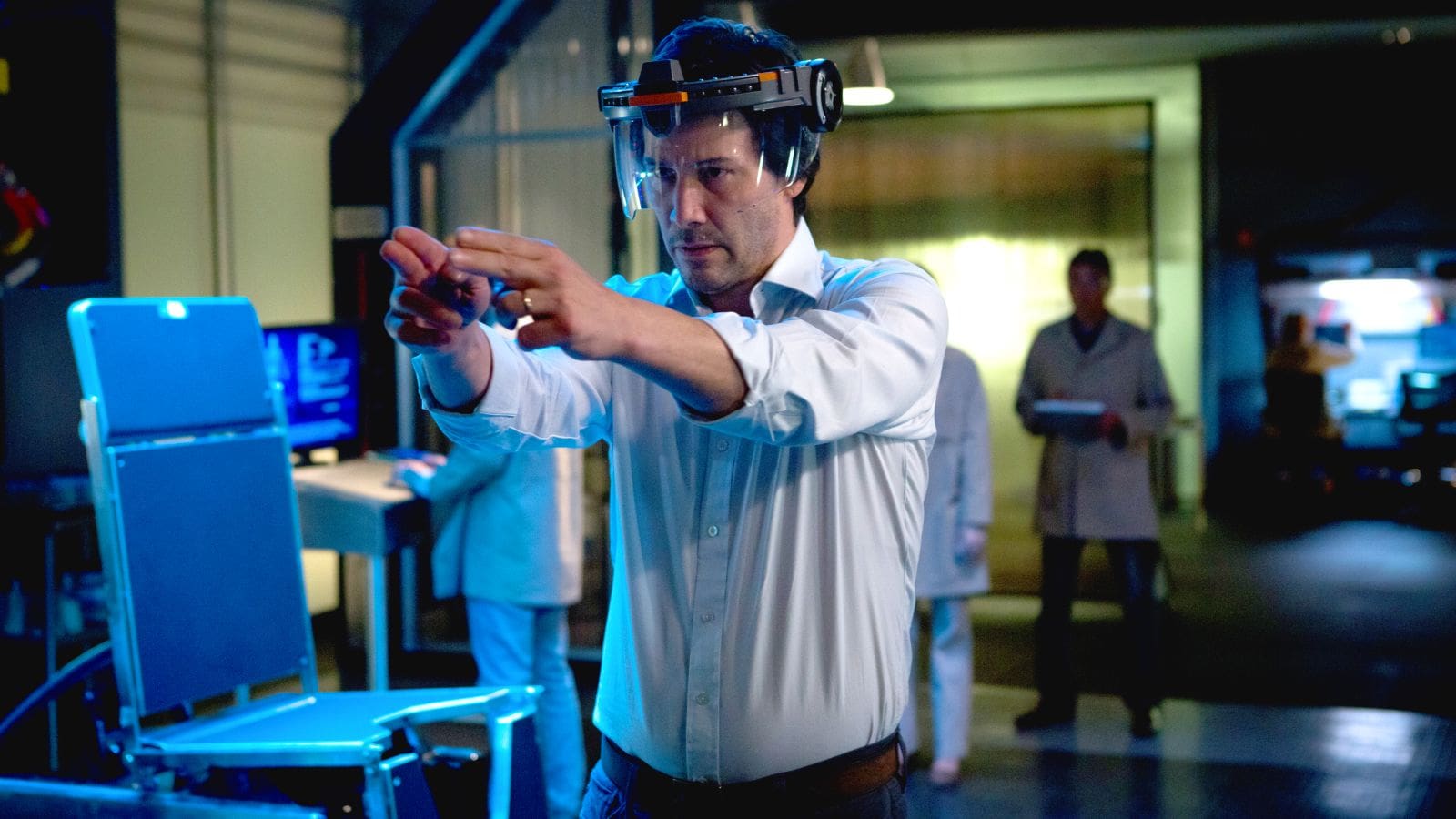
We’re not even two weeks into the new year, but Replicas may already be 2019’s most fun disaster. Filmed all the way back in 2016, the sci-fi thriller finally hits theaters this weekend. While that delay speaks volumes about its quality, it’s a wonder anyone thought it would make a good movie in the first place.
After bio-engineer William Foster’s (Keanu Reeves) wife and three children die in a car crash, he and fellow scientist, Ed (Thomas Midddleditch), use their experimental research to copy the deceased Fosters’ consciousnesses into freshly-grown clones. It’s quite a premise and one that writer Chad St. John and director Jeffrey Nachmanoff barely manage to make into a coherent film, but Replicas’s awfulness is precisely what makes it so fun.
Reeves has had a bit of a career resurgence thanks to the John Wick franchise, but those films are so action-focused that they can hide his limits as a dramatic actor. Replicas relies on him to convey both William’s anguish and his quick devolution into madness and Reeves isn’t quite up to the task. We’re expected to believe William is so unhinged that he would force Ed to help him replicate his family, but scenes where William angrily hits something with a baseball bat or cries while he cleans off a unicorn one of his children drew on the dinner table feel too staged. We know we’re watching Reeves act and he doesn’t give himself over to the moment.
Still, while Reeves’s work is some of his weakest in years, it may not be entirely his fault. Pretty much every actor in the film seems adrift, as if Nachmanoff had no idea what he wanted or how to get it out of his actors if he did. Alice Eve as William’s wife, Mona, is probably the best example. Even before her character dies, Eve’s performance is stilted, almost robotic.
We don’t buy that she’s had three children with Reeves or even that she’s a real person—she’s just the beautiful wife whose sudden death pushes her husband to extremes. That said, Eve’s performance improves post-replication. Both William and the audience expect something to go wrong with his newly-replicated family and Eve’s aggressive normal-ness feels like a calm before a storm. Unfortunately, that storm never really comes.
It is difficult to talk about Replicas without spoiling some of its more absurd twists and turns, but the narrative is filled with so many holes, it feels like St. John (who wrote the script from a story by Stephen Hamel, who also conceived the story for 2016’s Passengers) never made it past a first draft. Perhaps the easiest way to describe the script’s issues is that St. John rarely seems to provide proper motivation for the characters’ actions or follow his plot twists to their logical ends. Some of those choices are easy to ignore–like justifying why Ed is so willing to help William–while others are so egregious that they make what happens after hard to believe.
Take, for example, the first major snag William runs into. When Ed delivers the cloning equipment to William’s house, he explains that they don’t have enough equipment to replicate the whole family. Rather than explain why William can’t just wait until the other three are done before he starts replicating the remaining family member, he not only agonizes over which family member to kill off forever, but erases that person from the rest of the family’s memories. William’s choices only become more inexplicable from there and while the premise requires some suspension of disbelief, St. John’s choice to throw in exposition at every point except when it’s most needed feels lazy at best or thoughtless at worst.
That said, considering how bad the dialogue is, perhaps the audience is lucky not to hear more of it. Every word is either exposition, doesn’t resemble human speech or is downright stupid. And so little of the exposition we hear never delivers on the potential conflict it describes, that you almost start to ignore what the characters are saying at all, Still, it’s precisely the awful dialogue and the way the film charges on without either internal or external logic that makes it so fun to watch.
Perhaps that’s why Middleditch gets through the film largely unscathed. His character is there to break the tension through humor by pointing out when William’s behavior is outrageous and, intentional or not, he gives the audience permission to take none of it seriously. Indeed, the more willing a viewer is to laugh at Replicas, the more fun they’ll have.
Taken at face value, Replicas is a poorly-conceived sci-fi movie that thinks it’s exploring the nature of what it means to be human. In reality, it doesn’t have any idea what it wants to say. However, taken as an object of ridicule like The Room or Showgirls, it’s the perfect antidote to the January movie wasteland. The people involved may look back on it in embarrassment, but history may just look kindly on this wonderful train wreck.
Rating: 3/10

